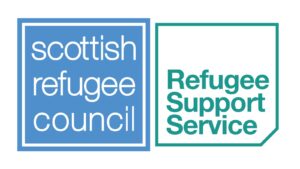Substantive interview
![]()
To change the page language, click the EN icon (top-left on desktop/laptop, bottom-left on mobile). If your language isn’t listed, use your browser’s menu for translation options.
Page last updated: July 2025
The substantive interview (also known as the 'big interview') is where you will provide detailed information about your reasons for claiming asylum in the UK.
These interviews can be very long and difficult, and you will have to give the interviewer a lot of detail. In some cases, you may have several shorter interviews rather than one long one. Like in the screening interview, you have the right to an interpreter if you need one. If you’d prefer your interviewer and/or interpreter to be a man or a woman you can request this.
You will receive a letter telling you the date, time and location of your interview, and whether the interview will be in person or by video link. If you have been invited to interview by video link and you do not feel comfortable with this, you can contact the Home Office and request that your interview be conducted in person. If you have to travel to attend your interview, the Home Office will provide travel tickets. If you haven’t received these tickets, it is important to contact Migrant Help.
The substantive interview is a challenging process, and is the most important part of your asylum claim. It is important that you prepare for it as well as you can, and that you have a legal representative to help you if possible.
What to expect:
Your substantive interview will be conducted by a Home Office caseworker. You have the right to an interpreter if you need one. If you’d prefer your interviewer and/or interpreter to be a man or a woman you can request this and the Home Office will try to accommodate your request.
In most cases, you will be interviewed on your own. If you have a lawyer, they may be able to attend the interview with you. However, if your lawyer is being paid through legal aid, there may be rules about the amount of time they can spend on your case that might mean they can’t attend with you.
During your interview, you’ll be asked detailed questions about:
- You and your background – including your life story and personal circumstances
- When and how you left your country – and your journey to the UK
- Why you can’t return safely – the reasons you would be at risk if you went back
- Why you would not be safe anywhere in your country – not just in your home area
- Who is threatening or persecuting you – and why they are targeting you
- Any arrests, imprisonment or traumatic experiences – such as assault or torture
You will probably be asked the same thing many times in different ways.
It is important to remember that your interviewer may not know very much about your country or culture. This can lead to misunderstandings during your interview.
Take your time answering questions and give as much detail as you can. You can ask for clarification if you aren’t sure what a question means.
The interviewer may say or imply that they do not believe part of your story, or may come across as confrontational or unhelpful. Be prepared for this and think about ways you can help yourself stay calm.
For more detail on what to expect during your substantive interview, visit Right to Remain’s asylum toolkit.
Preparing for your substantive interview
It is important to prepare as much as you can for your substantive interview. It is important to seek legal advice as early as you can. Your lawyer will be able to help you prepare for your interview.
You might want to try telling your story to a friend or supporter who can point out where you might have explained something in a roundabout way or forgotten to include details. You could also write down the key points or draw yourself pictures, although you will not be able to take these into the interview with you.
Your lawyer may be able to help you gather evidence to support your interview testimony. This evidence will usually be submitted before your interview, and could include:
- A written statement explaining parts of your case you don’t feel able to speak about in an interview,
- Personal or official documents,
- Medical or medico-legal reports documenting the effects of torture or other violence,
- Evidence about the situation in your country from reliable sources or an expert.
- You should make sure you have discussed any evidence with your lawyer before you decide to send it to the Home Office. Evidence from your home country will need to be translated into English.
Your rights at a substantive interview
What happens next?
The Home Office will decide the outcome of your claim based on your interviews and the evidence you and your legal representative have provided. This may take months or years.
Delays do not mean that your claim will be successful or refused.
If your case is complicated, it is possible that the Home Office will tell you that:
- Your supporting documents need to be verified
- You need to attend more interviews
- Your personal circumstances need to be checked, for example because you have a criminal conviction or you’re currently being prosecuted
Ask your legal adviser if you want to seek an update on your application. However, they may tell you that you need to wait for a few months before they can get an update from the Home Office.
Your asylum support will continue after your substantive interview and will last until you receive a decision on your claim.



